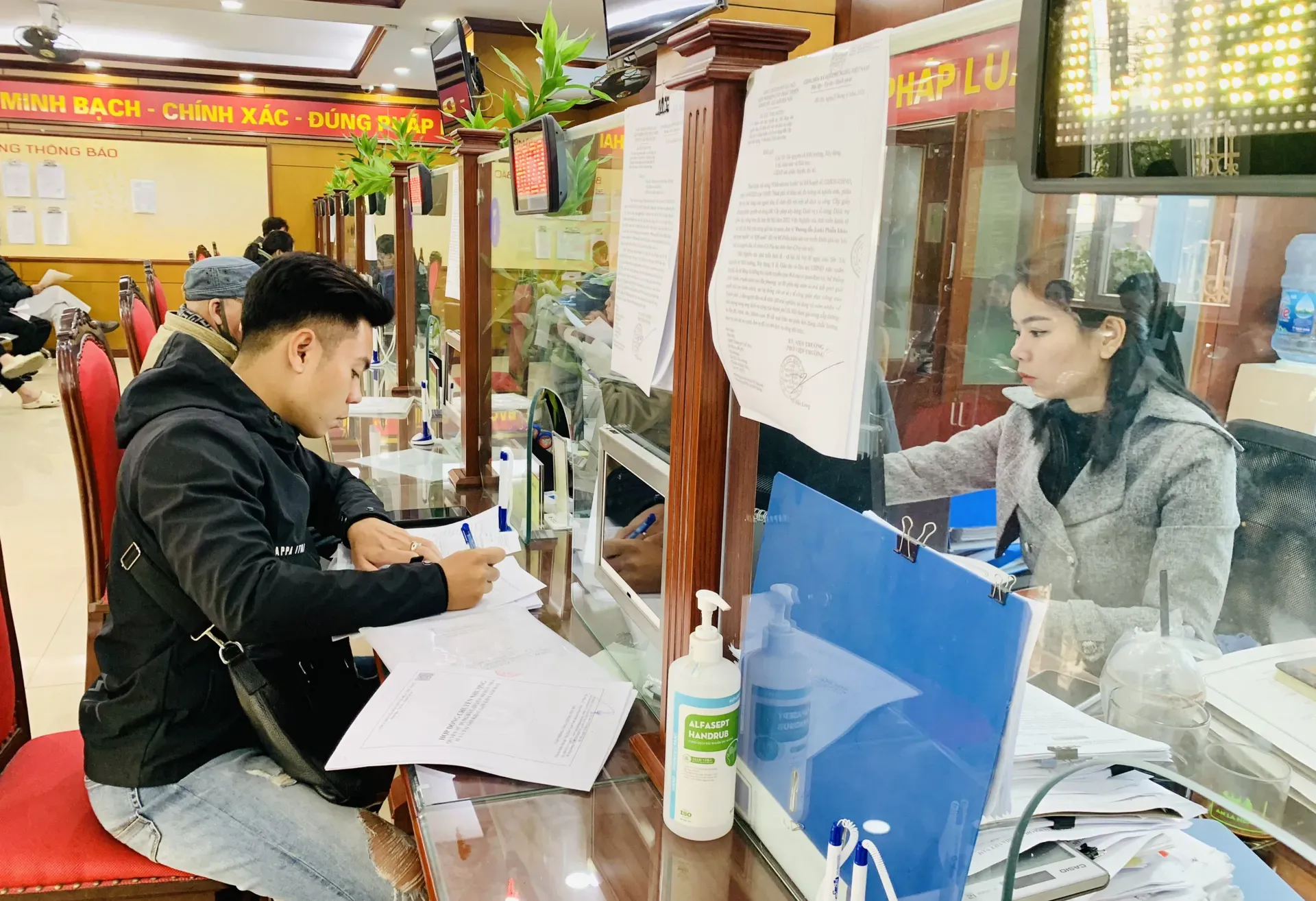Hanoi strives to fully digitize data in public administration by late 2025
Hanoi is building a solid data foundation to create an e-government system that effectively serves people and businesses.
THE HANOI TIMES — Hanoi is striving to fully digitize records of administrative procedures records and streamline public services by December 31, 2025, in a move toward digital governance.
The goal aims to maximize data utilization, reduce processing time, and provide better services regardless of geographic boundaries. Through streamlining administrative processes, Hanoi hopes to increase efficiency, boost productivity, and contribute to the development of digital citizens and digital enterprises in the capital.

Tran Sy Thanh, Chairman of the Hanoi People's Committee, inspects a branch of the Hanoi Public Administration Service Center. Photos: Kinh te & Do thi Newspaper
Cu Ngoc Trang, Director of the Hanoi Public Administration Service Center, said this task requires incorporating digital technology solutions and using an electronic data storage system provided by the Department of Administrative Management on Social Order under the Ministry of Public Security, beginning in the first quarter of 2025.
Awareness campaigns will be launched to highlight the importance and benefits of digitizing administrative procedures.
Frequent security assessments are needed to protect digital administrative records, backup and recovery systems, cybersecurity measures, and data security, Trang said.
In addition, Hanoi is aggressively digitizing data to build a solid foundation for an e-government system. Districts are digitizing historical and cultural relics, civil status, judicial data, and administrative procedures.

Residents of Hanoi can complete administrative procedures at a one-stop service center.
Meanwhile, Hai Ba Trung District has digitized the data of more than 11,600 enterprises and nearly 11,350 business households for tax management, fire prevention, and food safety.
In Tay Ho District, nearly 158,000 household registration data have been digitized. In addition, 100 historical relics and typical scenic spots, restaurants, hotels have been digitized using VR360 virtual reality technology with interactive images, English and Chinese subtitles.
In particular, Hanoi has accelerated the digitization of land use rights and assets and cleaned up the city's land data to streamline residence management and reduce land paperwork.
Since January 1, the capital has issued about 11,000 land use rights certificates with QR codes, according to a report released by the Hanoi Department of Agriculture and Environment. The land use rights certificate with embedded QR code allows people to look up all the information related to the land parcel and house, making it more convenient for people compared to the previous versions of the certificate.
Moreover, people can access and provide feedback on certificate details and related information by scanning the QR code with their mobile phones or through the National Public Service Portal or their local government's Public Service Portal.
To reduce the amount of paperwork involved in land management procedures, Hanoi is accelerating the digitization of land use rights certificate data and land assets, and cleaning up the city's land data.
The Hanoi People's Committee has asked relevant agencies to share the city's land database system with the national one, as instructed by the Ministry of Agriculture and Environment.
As Vietnam's administrative center, the capital has made digital transformation a top priority to improve governance, simplify administrative procedures, and facilitate communication with citizens and businesses.












